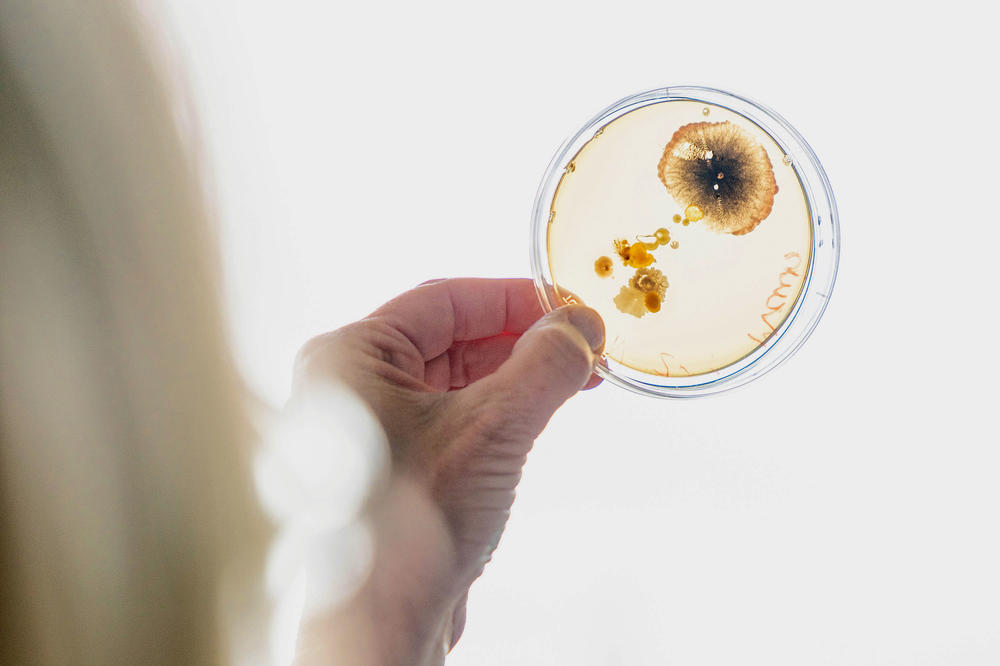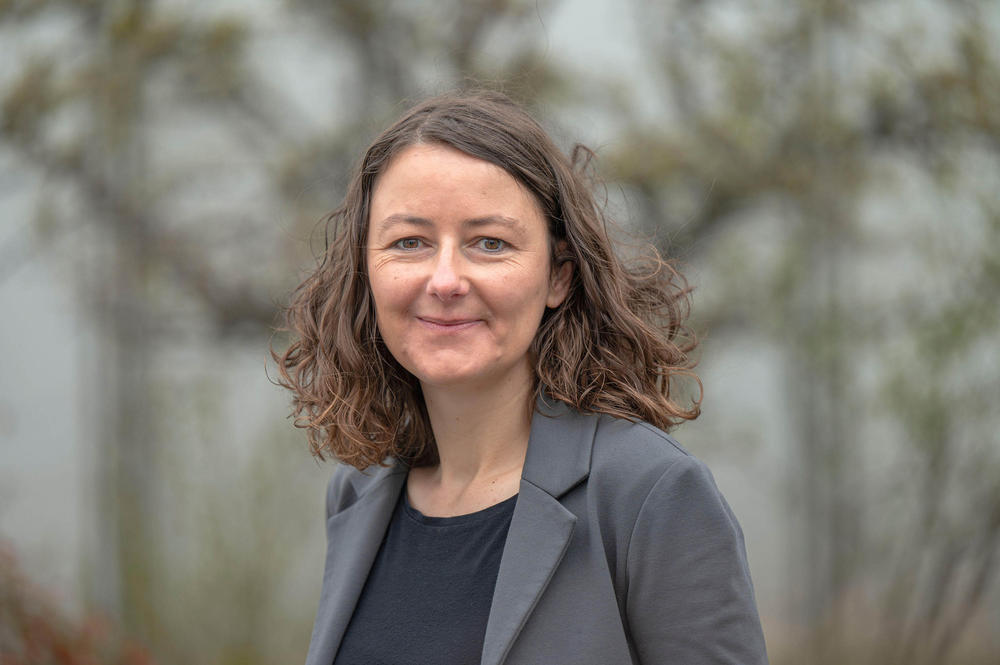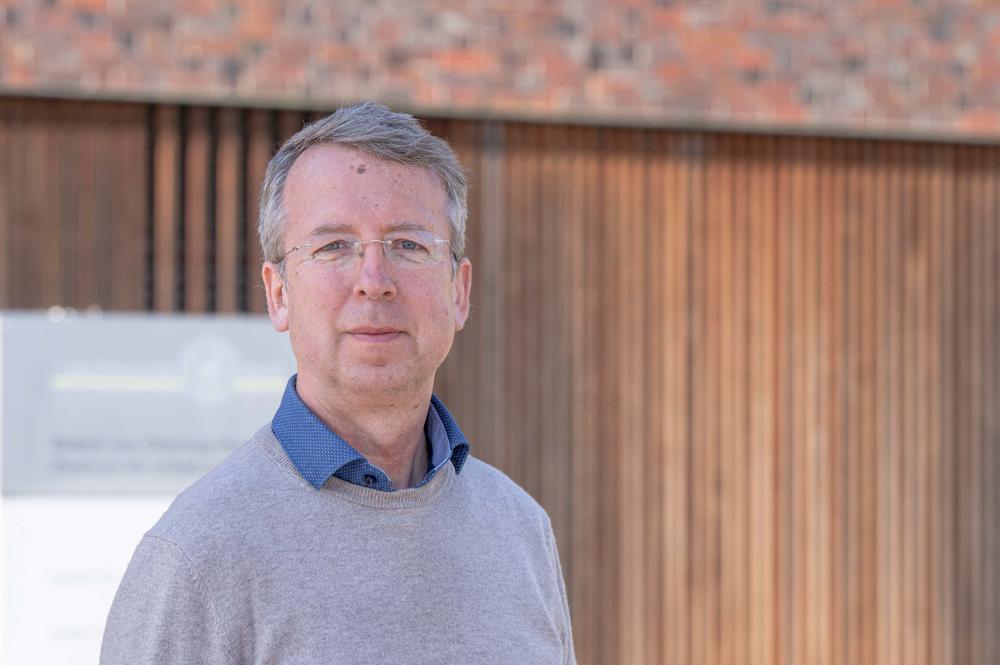Ombudspersons for Research Integrity
Interview: Psychologist Steffi Pohl and Veterinarian Georg von Samson-Himmelstjerna are committed to good research practice in their academic departments
May 12, 2022
Hypothesis, experiment, evaluation, publication: Research should be transparent, fair, and honest in all phases. Decentralized ombudspersons in the departments provide advice and mediate in the event of a conflict.
Image Credit: Michael Fahrig
Last year the system of ombudspersons for research integrity at Freie Universität Berlin was reorganized. In addition to a central ombudsperson, there are now selected contact persons in the academic departments, who provide confidential advice and support in issues concerning good research practice. Steffi Pohl, a professor of methods, evaluation, and quality assurance, has been the ombudsperson for academic integrity in the Department of Education and Psychology since mid-2021. Georg von Samson-Himmelstjerna, a professor of parasitology at the Department of Veterinary Medicine, has held this position in his department for six years.
Professor Pohl, Professor von Samson-Himmelstjerna, what is the role of an ombudsperson?
Steffi Pohl: We are the contact persons for questions about academic integrity for all members of the university, from students to academic staff, academic support staff, and professors. We are not a legal authority and do not make any decisions, but we help to resolve conflicts at an early stage. In the only case I have dealt with so far as an ombudsperson, this worked well because those affected contacted me before an escalation could occur.
At the same time, we ensure that workshops on good research practice are offered in the department. We also exchange information about our activities with the central coordination office at Freie Universität. Once a year there is a meeting for all the decentralized ombudspersons. The last one was just a few weeks ago.
Education scholar Steffi Pohl has been the ombudsperson for academic integrity at the Department of Education and Psychology since mid-2021.
Image Credit: Bernd Wannenmacher
Georg von Samson-Himmelstjerna: My work in the Department of Veterinary Medicine is similar. For example, together with other individuals from the department, I organize further training, intended especially for doctoral candidates. Participation in these events was laid down in our doctoral regulations, so it is mandatory for all doctoral students, not just those in doctoral programs. My colleague Jürgen Krücken and I also both completed a teacher’s training course on good research practice ourselves.
What are your priorities?
Georg von Samson-Himmelstjerna: It is very important to me to reach not only doctoral students, but all principle investigators. We want to inform and educate everyone who supervises scientific work. We see that there is a lack of knowledge in many areas when doctoral students report on how laboratory books or data backups are handled in their working groups.
For about a year now, most of the groups in the Department of Veterinary Medicine have been using the Labfolder digital laboratory notebook. This helps in many ways. The documentation is tamper-proof and the data cannot be destroyed or lost.
Steffi Pohl: The situation in our department is similar. Some rules and processes are not being implemented uniformly, which creates confusion among the students. That is why I’m working with the head of the examination board, among other things, on a set of rules for students and lecturers that should clarify what the rules are and what happens if you do not comply with them.
Students who copy from each other are often unaware of the problem. “Everybody does it” is a popular argument. But we have to convey early on that such behavior is not tolerable, even in an internship report because it will lead to major problems in the dissertation at the latest.
It is important for us to have a common stance and clearly communicate what we stand for because it affects the credibility of science. With topics like the coronavirus or climate change, we are seeing how important trust in scientific knowledge is.
Are there conflicts specific to certain departments?
Georg von Samson-Himmelstjerna: In veterinary medicine we are very fortunate that there are few blatant cases of scientific misconduct. From time to time there are conflicts about authorship, but that occurs much less often than I hear from other disciplines. We most often see plagiarism in the introductory chapters of dissertations, where material and methods are presented, but rarely in the experimental part that deals with new findings.
Veterinarian Georg von Samson-Himmelstjerna has been the decentralized representative for good scientific practice in the Department of Veterinary Medicine for six years.
Image Credit: Bernd Wannenmacher
But aren’t there problems in the experimental part if, for example, measurements are corrected slightly in order to confirm hypotheses?
Georg von Samson-Himmelstjerna: Of course that is always a possibility. We address this issue in training courses. Doctoral students often ask for advice, for example, when it comes to presenting images of molecular or immunological analyses. There are many technical options for processing such images, but the question is always what is permitted within the framework of good scientific practice. A frequent question is also whether one can exclude outliers, i.e., individual, strongly deviating measurement results, from a data analysis.
Steffi Pohl: The so-called replication crisis began in psychology: Findings from published studies were not able to be repeated by independent research groups. An international research team repeated 100 psychological studies published in leading journals and came to the conclusion in 2015 that less than half of all attempts at replication confirm the original findings.
Plausible variations could explain some of the deviations. Others cast doubts on scientific integrity and were attributed to HARKing, among other things. This is an acronym for hypothesizing after the results are known, when researchers first search for positive findings and subsequently change the hypothesis, or the research question. The problem also occurs in other disciplines, but in psychology it was drawn to attention for review by the large-scale study. Since then there has been a great deal of discussion and considerations about what we can do about it.
And what can you do about it?
Steffi Pohl: For example, I find the preliminary registration of studies very useful: Before even collecting data, you openly describe your entire research project in detail, including the evaluation plans. Some journals even practice “Acceptance in Principle.” The preliminary registration is assessed. If this is rated as convincing, the findings will then be published as planned, regardless of whether they failed to support the hypothesis. Negative or unexpected findings are also valuable for science.
The field of psychology turned the replication crisis into a strength and, for example, promoted the open science movement, which in my opinion revolutionizes science. We should do something similar at Freie Universität in the aftermath of the Giffey case. We are not the only ones with a problem with plagiarism. We should use it as an opportunity to improve the academic system.
Georg von Samson-Himmelstjerna: It is good that there is now a full-time coordination center for scientific integrity at Freie Universität. This investment in staff will pay off. We ombudspersons work on a voluntary basis, and all the researchers have a lot of other tasks. If I offer further training for project leaders, a maximum of 10 to 20 percent will attend. A three-hour event is too long for the others.
Steffi Pohl: I think there is awareness for the topic, but researchers have to budget their time. If you want to give the topic more weight, this should be reflected in incentive systems, similar as it is done for complying with principles of open science.
Georg von Samson-Himmelstjerna: We will have achieved our goal when we manage to convey the principles of good research practice to everyone, from students to project leaders, and to anchor them in our everyday research practice.
Marion Kuka conducted the interview. It was originally published in German on April 8, 2022, in campus.leben, the online magazine of Freie Universität Berlin.



